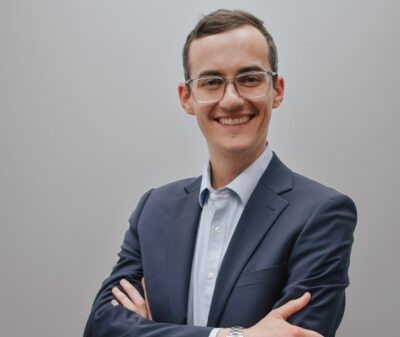Each week, I post about public adjusting and the trends in the industry. Recently, I learned the background story of public insurance adjuster who, prior to advocating for policyholders as a PA, was a very successful catastrophe adjuster. Mark Goldwich of Gold Star Adjusters, LLC., explains why he left his job at a major insurance company to work as a public adjuster. Mark’s story is published in his book, Uncovered: What Really Happens After the Storm, Flood, Earthquake or Fire.
Here is some of Mark’s story…
I won’t tell you the name of the insurance company I used to work for- I’ll just tell you that it was a major player. Let’s call the company I used to work for BigCo.
BigCo was really good at creating a sense of ‘welcoming culture’ within the organization for its employees. When I started there in the late eighties, the company really seemed to offer a ‘family’ atmosphere.
My landing a job at BigCo was quite a coup; BigCo was a ‘prestige’ company, and the competition to get in was fierce” “Getting promoted to supervisor in under five years was another big accomplishment. Generally, you had to work there at least seven years before you could expect something like that. So I was on the fast track. I felt as if I were on the top of the world. I was a company guy. I was all about BigCo.
A big change happened for me in 1996, though. That was when I became a part of BigCo’s newly developed national catastrophe program. I gave up my job as a local supervisor at BigCo. The new position required a lot of travel. Because I had taken the new job, I was now traveling around the country, staying in seemingly endless series of hotels, and working very, very long hours. Twelve hour days were the minimum; six-day work weeks were the norm. I got a weekend off- as in two straight days at home-only every six weeks or so.
While working on the catastrophe team at BigCo, I began to see first-hand all the subtle ways the company manipulated the process to disadvantage policyholders. I began to notice how the words of the company used pointed in one direction…but the actions we took tended to point in another, very different direction….
I found us merely scurrying about to keep just enough money in people’s hands to keep complaints at a minimum. I saw too many ‘high-fives’ among BigCo team members when a policyholder’s claim was denied.
I also began to see that the family culture that BigCo took such pride in was more complex that I had imagined. It now had a darker side- you were part of the family as long as you did exactly what you were told, and as long as you accepted, without challenge, all of the unspoken assumptions you were supposed to accept.
Some of the unspoken ‘BigCo Family’ assumptions were:
- Claims from consumers were likely to be inflated, if not fraudulent. Treat them that way.
- You can always find some reason to delay.
- You can always find something to deny, reduce payment on, or limit.
- You can always find a way to deflect responsibility. Find someone or something else to blame for the situation the policyholder is facing.
- While you are doing these things, you must maintain, and endorse, the public position that BigCo is doing everything right, and is always out to give policyholders a fair shake.
You were only part of the ‘family’ if you agreed to conceal these basic working principles from the media, from the general public, and from policyholders.
It was time to get out. I began a career as a public adjuster. Shortly after leaving BigCo and starting working in my new field, I was working the Florida Panhandle with a retired Air Force veteran whom I’ll call ‘Captain Charlie’. He and his wife had been hit hard by Hurricane Ivan.” “Captain Charlie’s insurer gave him a shockingly low building-loss offer, and denied his claim for contents of his home entirely.
It was an infuriating result- one I knew I could improve for Captain Charlie. Knowing the internal workings of companies like his as well as I did, I took it as my personal mission to win Captain Charlie a better settlement” “He ended up getting over $39,000.00 that had originally been denied for contents of his home. I also secured additional payments on his home itself that totaled over $71,000.00….
I will never forget the look on Captain Charlie’s face when he got the news- over a hundred grand in additional payments from an insurer that had chosen to fight him tooth and nail, and had lost. I have never seen a man more grateful.
In a future post, we will discuss Mark’s book in detail, but I thought it was important to know Mark’s story first. To learn more about Mark, I encourage you to visit his website.
If you are a public adjuster and have a story to tell, drop me an email at nvinson@merlinlawgroup.com.



